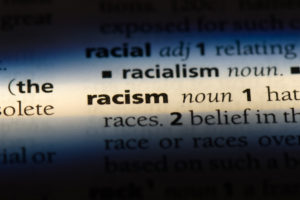Thom Hartmann has a proposal to fix the economy that is at first glance odd but on second thought makes some sense. His proposal to fix our economic woes? Lower the retirement age to 55. Mr. Hartmann (thom@thomhartmann.com) is a Project Censored Award-winning New York Times best-selling author, and host of a nationally syndicated daily progressive talk program The Thom Hartmann Show. www.thomhartmann.com His most recent books are "The Last Hours of Ancient Sunlight," "Unequal Protection: The Rise of Corporate Dominance and the Theft of Human Rights," "We The People: A Call To Take Back America," "What Would Jefferson Do?," "Screwed: The Undeclared War Against the Middle Class and What We Can Do About It," and "Cracking The Code: The Art and Science of Political Persuasion." His newest book is Threshold: The Crisis of Western Culture.
I am interested in Comments about this proposal. Why WON’T it work? What is wrong with it?
Here is the proposal:
1. Lower the current Social Security retirement age from the current 65-67 to 55, and
2. Increase the benefits back to where they were in inflation-adjusted 1960s dollars by raising them between 10 to 20 percent (so people could actually live, albeit modestly, on Social Security).
But won’t this bankrupt Social Security? I mean it has more people drawing benefits and the benefits are higher. If Social Security is really going broke won’t this hasten the demise?
According to Hartmann it would eliminate the problem of unemployment in the United States.
All those Boomers retiring would make room in the labor market for all the recent high-school and college graduates who are now finding it so hard to find a job.
If enough Boomers left the job market, it would even flip the current dynamic of too-many-people-chasing-too-few-jobs upside down, and create a tight labor markets. Tight labor markets drive up wages.
And as wages go up, tax revenues – which are paying for Social Security (among other things) – would increase.
Additionally, these new-into-the-workforce people can then pay off student loans, buy new houses and cars, and otherwise drive the economy from the bottom up. Which will further increase tax revenues further strengthening the Social Security system.
Then he proposes to increase tax revenues by using a modified version of the Fair Labor Standards Act of 1938 – which tightened the labor market and reduced unemployment by establishing the 40-hour work week – to include all hours worked by a person. And he suggests lowering the 40-hour maximum-workweek threshold to 35 hours (used by the Mitterrand government in France to successfully lower unemployment and stimulate the French economy). A final step would be to do what the rest of the developed world does and require by law that every worker get at least two to four weeks a year of paid vacation – further tightening the labor market.
In Uganda, Joseph Okwakoi called on Parliament and President Museveni to lower the age of retirement for government workers (the country’s largest employer) from the current 60 years of age to 55. This single act would instantly create about 15,000 job openings in the country, which could be filled by currently unemployed young people.
Hartmann points to history in support of his ideas:
This is the main reason why the labor movements of the 18th and 19th centuries fought so hard against child labor; they knew that if children were removed from the labor marketplace, then the supply of labor (the number of people available to work) would decrease and the price of labor (wages) would increase. And, sure enough, that’s exactly what happened – and it began the creation of a blue-collar middle class.
It’s also why the labor movement pushed for an 8-hour day and a 40-hour maximum workweek. By reducing the amount of labor available from each worker from the average 60 hours a week or so people were working before 1938, the labor market tightened up, increasing the number of people who could be employed and raising wages.
Hartmann points out that this is exactly the opposite of what the U.S. has done since Reagan.
Reagan drove down wages by busting unions (which tighten a labor marketplace); declared an amnesty for millions of then-illegal immigrant workers to increase the supply of labor and depress wages (particularly whacking the carpenters and other construction trades unions); and began the process (completed in a big way by Bill Clinton with NAFTA and GATT/WTO) of dismantling tariffs, taxes, and laws that made it expensive or illegal to export American jobs.
Reagan also put into the chairmanship of the Fed Alan Greenspan, who openly declared that his most important job as chairman of the Fed was to prevent “wage inflation” – a term which he exclusively applied to working-class people. Greenspan is still preaching that now-discredited and anti-American philosophy he learned from Ayn Rand, in fact.
In September of 2007, in an interview on C-SPAN for Book TV, Greenspan said:
“We pay the highest skilled labor wages in the world. If we would open up our borders to skilled labor far more than we do, we would attract a very substantial quantity of skilled labor which would suppress the wage levels of the skilled, because the skilled are essentially being subsidized by the government, meaning our competition is being kept outside the country.”
Hartmann finds it shocking that people believe this rhetoric.His proposal to tighten up the labor market again and get out of what he calls "our insane trade treaties" and go back to protecting U.S. manufacturers with 1980 tariff levels..
Sixteen percent (16%) of the American workforce over 55 years old and so Hartmann is talking about big numbers. The most interesting number is zero as in zero unemployment.
I am intrigued by this innovative and historically based proposal. What do you think?

A resident of Honolulu, Hawaii, Wayne Parsons is an Injury Attorney that has dedicate his life to improving the delivery of justice to the people of his community and throughout the United States. He is driven to make sure that the wrongful, careless or negligent behavior that caused his clients' injury or loss does not happen to others.










One Comment
Mike Bryant
With people living longer and the medical advances it is more likely to head in the other way. Seems like a large number of productive American's would be lost. But, like you said maybe it takes a while to sink in.
Comments for this article are closed.